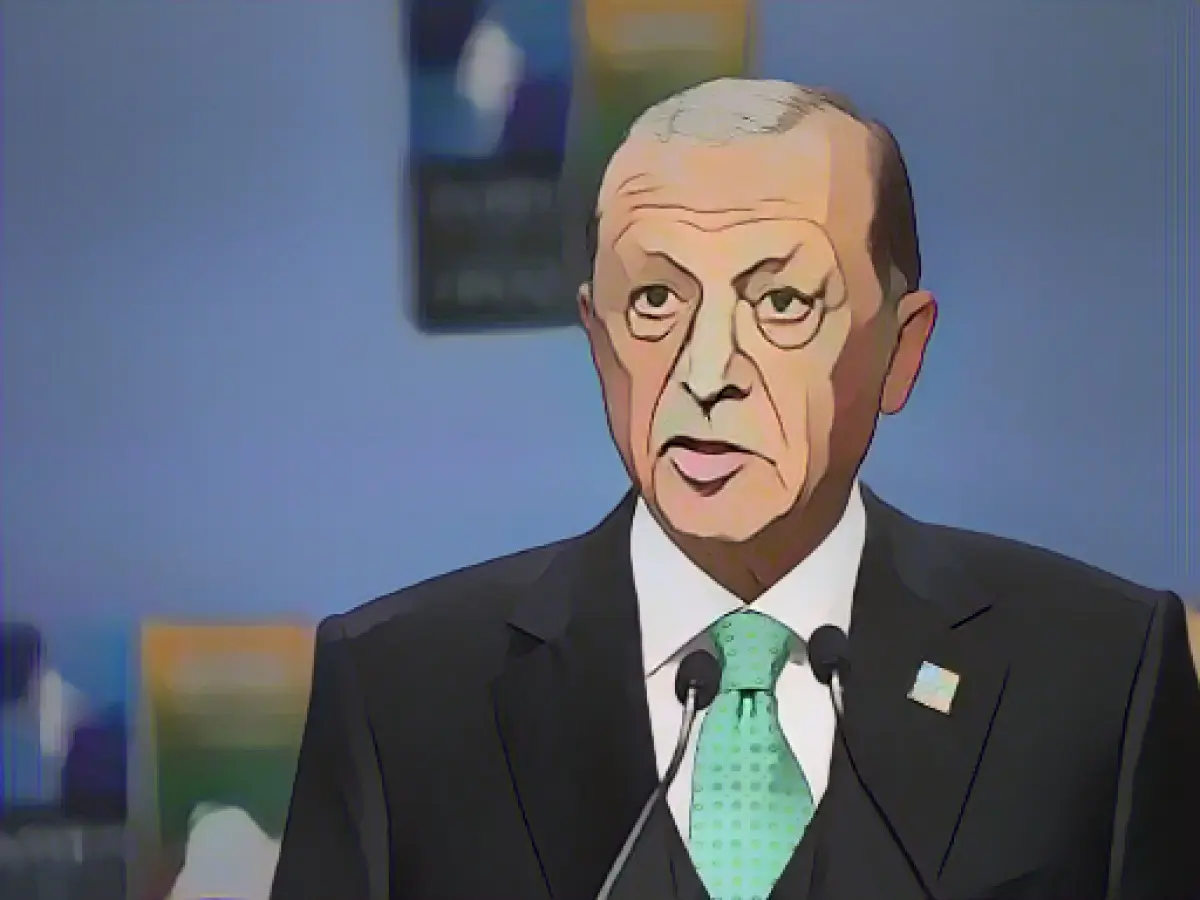Turkey's President Recep Tayyip Erdogan sets foot in Germany for the first time in three years, shielded by a substantial police force. His meeting with Federal Chancellor Olaf Scholz at the Chancellory is shrouded in controversy due to Erdogan's controversial comments towards Israel and his support of Hamas, classified as a terrorist organization by the EU. Yet, Scholz considers Erdogan an essential interlocutor, particularly in the realm of addressing immigration to Europe.
Scholz extended an invitation to Erdogan following his re-election as President in May. However, following the gruesome terrorist attack in Israel, which claimed around 1,200 lives, Erdogan sparked outrage with his controversial remarks on the Gaza conflict. He defended Hamas as a "liberation organization" and labeled Israel a "terrorist state." Conversely, Germany views Israel's security as a matter of national priority, while Hamas remains a designated terrorist organization.
Germany anticipates multiple demonstrations surrounding Erdogan's brief visit to Berlin, with about 1,500 police officers standing ready.
Erdogan's contentious remarks on Israel and backing of Hamas have stirred controversy in the heart of German politics. However, the core of Turkish-German relations remains resilient, centering on immigration and bilateral collaborations. Despite controversies, Erdogan's visit to Germany in the midst of Middle Eastern conflicts and the escalating Gaza conflict could inspire debates and possible protests, fueling the ongoing discussions.
Germany and Turkey share a rich historical, economic, and political relationship, with bilateral trade exceeding $50 billion annually. Turkish laborers played a pivotal role in Germany's economic growth during the 1950s and 1960s. Additionally, Turkey's mediation in regional conflicts, such as the Ukraine grain deal, is widely recognized.
The German election could shape migration policy, potentially leading to renegotiations on the EU-Turkey refugee deal or more stringent interpretations, which could impact visa liberalization for certain groups. However, Germany might prioritize domestic investments over foreign ones, due to the current recession, offering possibilities for economic cooperation.
Despite potential challenges, ongoing diplomatic engagements between lead political figures are critical in light of current regional conflicts and maintaining regional stability. Both Germany and Turkey reaffirm their commitment to maintaining positive relations, viewing the Erdogan visit as a key opportunity to strengthen their diplomatic ties.








